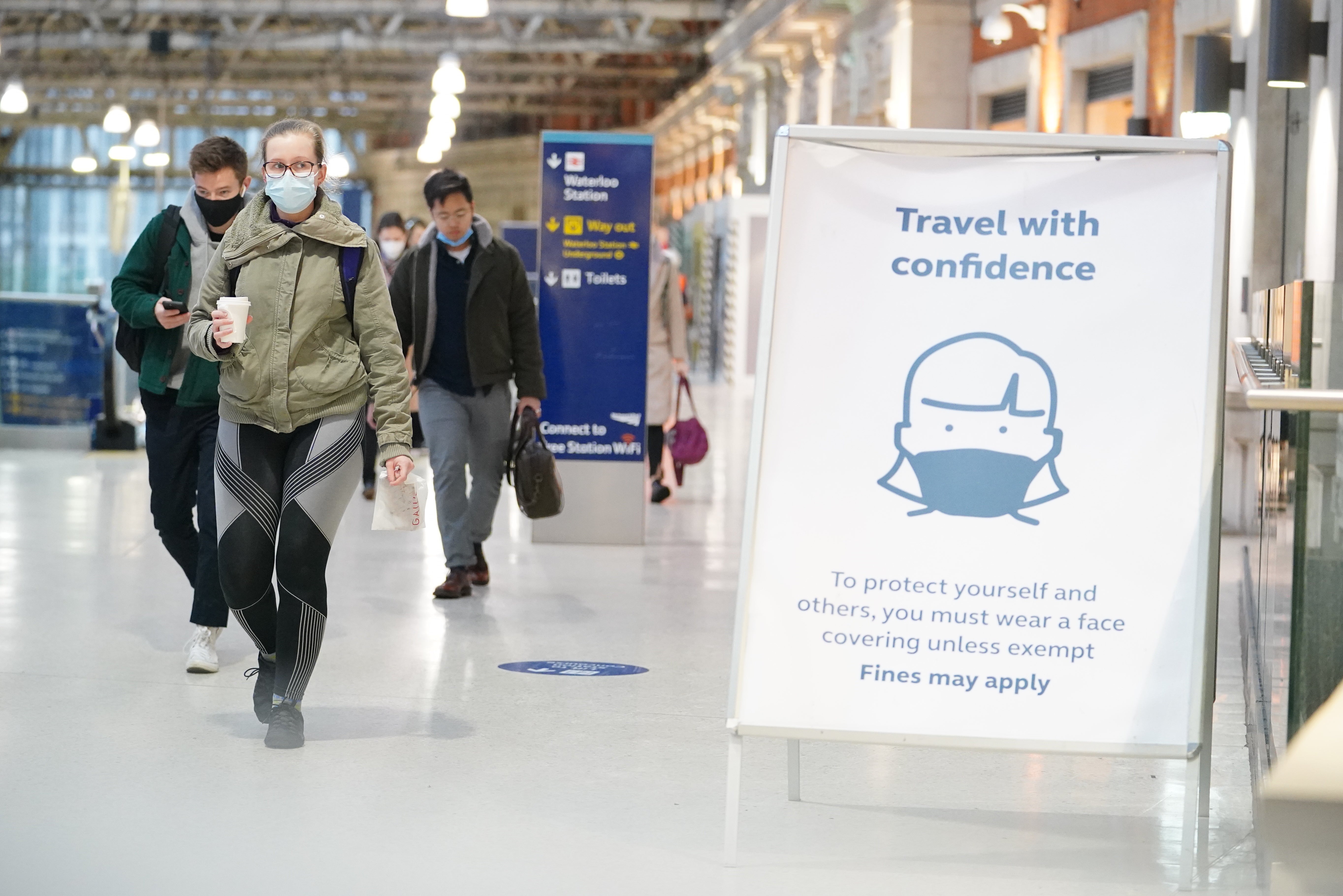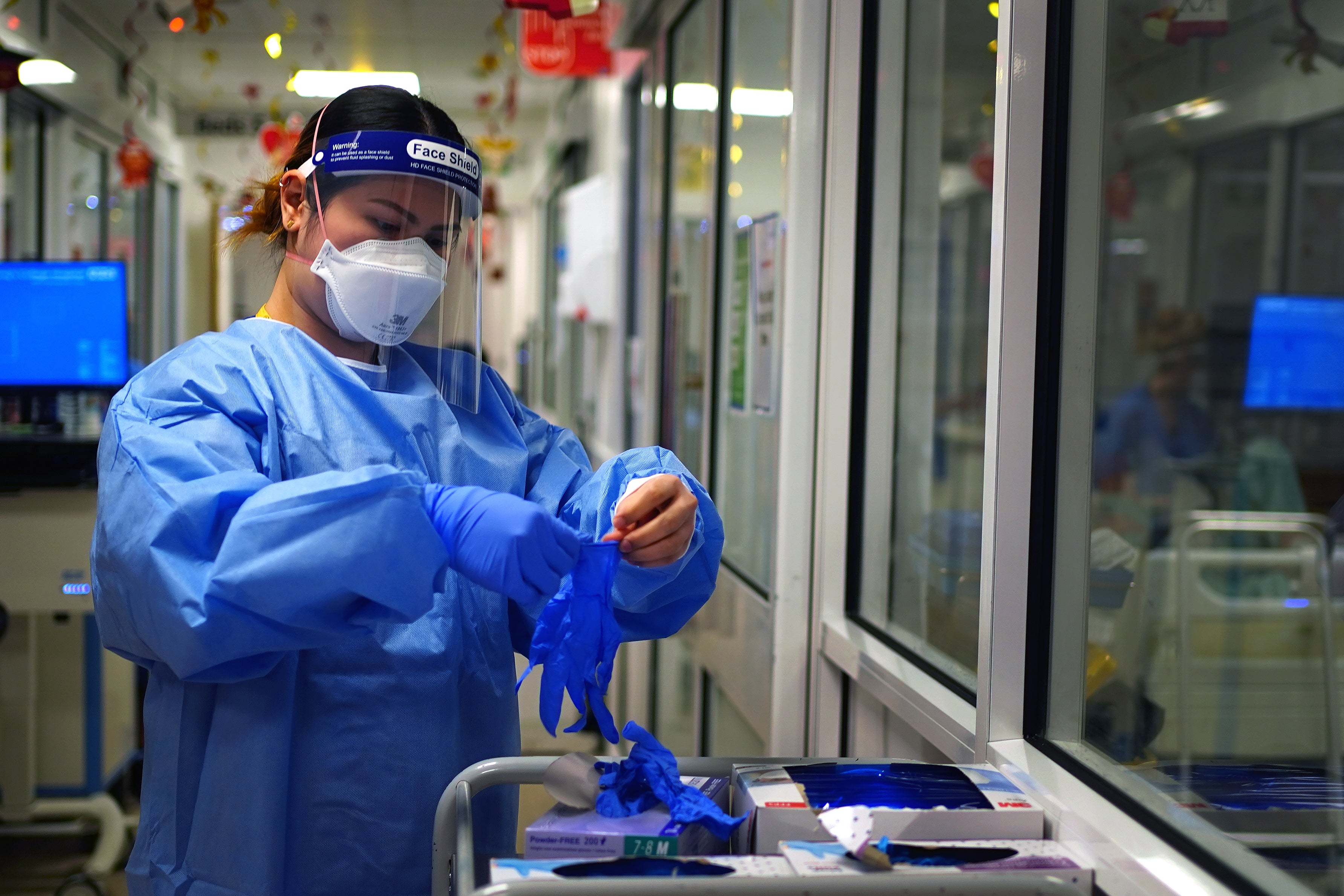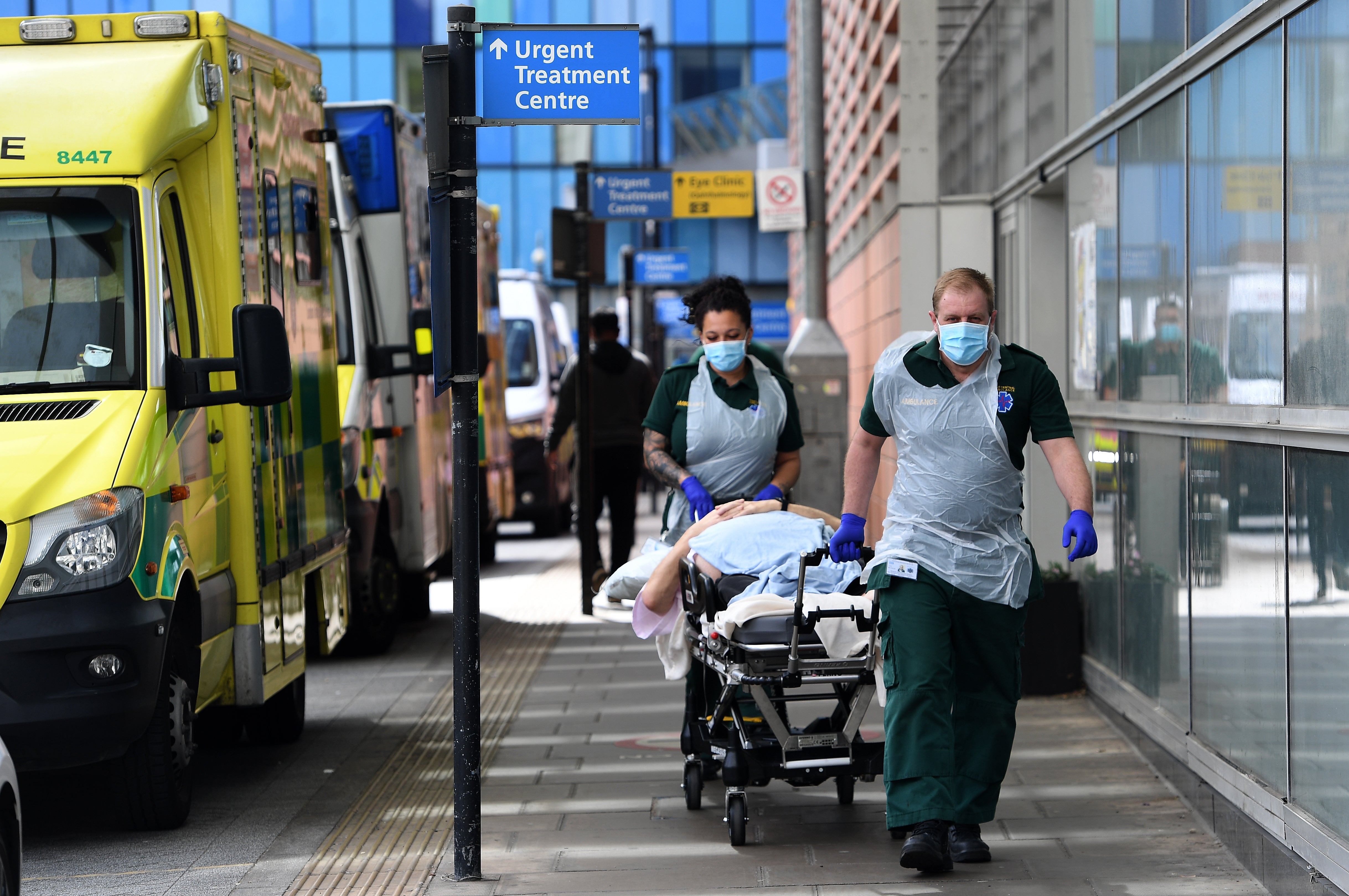UK ‘blind’ to new immune-evasive Covid variants creating ‘perfect storm’ for devastating wave
Experts warned that inadequate surveillance of new variants and a decrease in testing could reduce ability to tackle a new wave

The UK is heading into a “devastating” Covid wave this autumn exacerbated by a drop in testing and inadequate surveillance of new immune-evasive subvariants, experts have warned.
Covid-19 infections in the UK have risen 14 per cent, according to the latest figures.
Some 1.1 million people in private households tested positive for coronavirus in the latest survey, which covers the seven days to 17 September in England and the week to 20 September in the other three nations, according to the Office for National Statistics (ONS).
It is the first time the UK-wide total has been above one million since late August, though it is still some way below the 3.8 million weekly infections in early July at the peak of the wave caused by the Omicron BA.4 and BA.5 subvariants of the virus.
Professor Tim Spector, co-founder of the Covid ZOE app, told The Independent the UK was already at the start of the next wave of coronavirus.
“It looks like we’re in the start of the next wave and this time it’s affected older people slightly earlier than the last wave,” Prof Spector said.
He added: “Many people are still using the government guidelines about symptoms which are wrong. At the moment, Covid starts in two-thirds of people with a sore throat. Fever and loss of smell are really rare now – so many old people may not think they’ve got Covid.
“They’d say it’s a cold and not be tested.”
Prof Spector said early data showed new subvariants of Omicron were becoming immune-evasive and could cause the UK “real problems” as winter approaches with the NHS “already on its knees”.
University of Warwick virologist, Professor Lawrence Young, said two Omicron subvariants – BA.2.75.2 derived from BA.2, and BQ1.1 derived from BA.5 – were causing concern in early data and showing signs of being able to escape the immune system.

“What’s interesting about these variants is that although they’re slightly different in how they’ve come about they’ve come up with the same changes to get around the body’s immune system,” Prof Young told The Independent.
“What we’re finding is the virus is evolving around the immunity that’s been built up through vaccines and countless infections people have had.”
He added: “The biggest concern we’re seeing is that in early data these variants are starting to cause a slight increase in infections. In a way, this was to be expected but it does demonstrate that we’re not out of the woods yet at all with this virus, sadly.”
Prof Young also warned that the downscaling of Covid testing laboratories since the unveiling of the government’s Living with Covid plan means the UK is “blind” to the behaviour of new potential variants of concern. Major NHS “Lighthouse” labs closed earlier this year in line with the government’s policy on the infection.
“We’ve really taken our eye off the ball with Covid tests,” he said. “We can only detect variants or know what’s coming by doing sequencing from PCR testing, and that’s not going on anywhere near the extent it was a year ago.
“People are going to get various infections over the winter but won’t know what they are because free tests aren’t available – it’s going to be a problem. Another angle is the economic pressure. If people do feel poorly they’re not likely to take time off work. You have a perfect storm here, really, of inadequate surveillance, people not coming forward for vaccination and the economic situation.”
Both professors called for stronger and more proactive messaging from the government ahead of the colder winter weather, while Prof Young called for the return of mask wearing in poorly ventilated and crowded indoor spaces.

Additionally, public health experts have called for booster jab uptake to increase, with Prof Young noting that new bivalent Covid vaccine boosters, which tackle more than one variant, were key to preventing a devastating wave. But he conceded that there were still question marks around how effective the immunisation would be in keeping vulnerable people from becoming very sick.
Immunologist Professor Denis Kinane, who founded Covid testing firm Cignpost Diagnostic, also raised concerns about the lack of free testing and surveillance of new variants.
“While cases are currently on their way up, we do not yet know the full extent of what is coming in autumn and winter. However, with mass-participation events like the football World Cup taking place in November, international travel growing rapidly, differing vaccination levels across the world, and with most countries having relaxed entry requirements, a rise in cases and emergence of newer variants cannot be ruled out,” Prof Kinane told The Independent.
Sarah Crofts, ONS deputy director for the Covid-19 infection survey, said it was “too early to identify whether this is the start of a new wave”.
Dr Mary Ramsay, director of public health programmes at the UK Health Security Agency (UKHSA), said it was “clear now that we are seeing an increase” in levels of Covid-19.
“Cases have started to climb and hospitalisations are increasing in the oldest age groups. In the coming weeks, we expect a double threat of low immunity and widely circulating flu and Covid-19, creating an unpredictable winter and additional pressure on health services,” she added.
The number of people in hospital with coronavirus throughout 2022 has remained well below levels seen in 2020 and early 2021, before the rollout of vaccines.




Join our commenting forum
Join thought-provoking conversations, follow other Independent readers and see their replies
0Comments